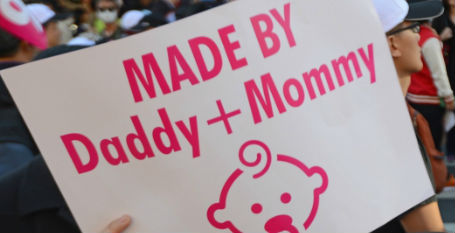“Over the past decade they have formed strategic coalitions to wage anti-gay campaigns to influence government policy,” says Ho Yi in a two-part series appearing in the ‘Taipei Times’ that examines the part Buddhist, Christian and Taoist religious leaders play in halting equality laws that seek to address anti-gay discrimination.
Easy access to politicians, lobbying and pressuring the government and legislature are some of the questionable ways conservative religious groups use to “set their own political agenda,” the report said.
“Some lawmakers hold posts in religious groups and tend to represent their interests. But a lawmaker needs to separate the job from his or her faith,” Legislator Cheng Li-chun who maintains that religion exerts significant influence on policy-making decisions and is a cause for great concern.
Cheng was quoted as saying that though individuals and institution are entitled to political advocacy, lobbying should never involve any form of discrimination or disregard for human rights.
“The opponents of same-sex marriage use false information to defame… They adopt discriminatory language aiming to attack, calling homosexuality a disease at public hearings… If Taiwan had an anti-discrimination law, they would go to jail for what they say,” she said.
Cheng, who in October introduced amendments to Article 972 of the Civil Code in the legislature to allow same-sex unions, has been subjected to crank calls and malicious online propaganda accusing her of destroying families.
Yu Mei-nu, another legislator who supports Cheng’s initiative, said her office has been bombarded with phone calls by angry citizens who “scold and scream from day to night.”
Religious authorities also deploy representatives to meet with high-ranking politicians such as Legislative Speaker Wang Jin-pyng to express their opposition to same-sex marriage, say Yu and Cheng.
Consequently, most lawmakers find the bill a political hot potato and choose to stay away from it, they say.
“When everyone at the legislature avoids taking a stand on the issue, then you get no discussion or debate. When people choose not to see it, the bill is dead,” Yu adds.
At present, the proposed amendments have been referred to the legislature’s Judiciary and Organic Laws and Statutes Committee for further discussion.
However, the current co-chairs of the committee have yet to schedule meetings to review the amendments and have no intention of doing so, says Yu.
Victoria Hsu, chief executive officer of the Taiwan Alliance to Promote Civil Partnership Rights, says her group has been preparing to file lawsuits against government agencies to challenge laws that discriminate against individuals based on their sexual orientation.

